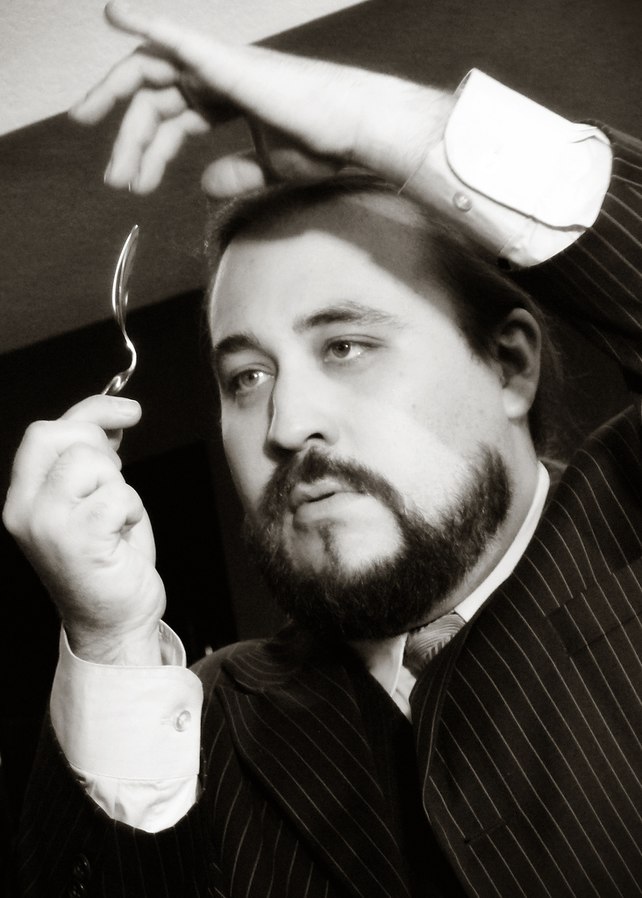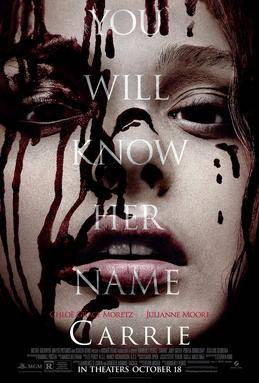What an interesting thing the mind can be in an age where misfits enjoy stories that illuminate the horrifying nature of what lies in the depths of the human psyche. Man can be driven to madness when his mind is invaded, when his sanity is questioned, or when his morals have been corrupted, but what is hidden amongst his deepest darkest dreams, desires, and fears? How can we really know what is real and what is imagined—more importantly, do we dare pursue those instincts within to find the true power that could be concealed inside every single one of us?
Psychokinesis is a concept that is often regarded with derision, especially within the scientific community and yet it has been studied fairly extensively. It seems like the results from such experiments and theories are never released in any legitimate form, but instead further speculated upon—then again, perhaps that’s why we have gotten so many great movies in the horror genre that depict these people with larger than life abilities that potentially threaten the lives of anyone caught unable to defend themselves.

The pure number of speculated types of psychokinesis is quite outrageous—name a type of object and there is probably a -kinesis to cover it. Of course, there are the more well-known versions of the phenomenon, such as telekinesis the ability to move objects with your mind, pyrokinesis the ability to create, control, and extinguish a fire with your mind. There are also ones that are less widely known, or even otherwise unheard of—like aerokinesis which is the supposed ability to manipulate air molecules to create wind, or similarly atmokinesis, which would enable the person to manipulate weather conditions.
These types of psychokinesis range into the absurd, so much so that there is even one for manipulating the perception of time, or manipulating time itself, which is called chronokinesis—not to say that these powers wouldn’t be absolutely stellar to have, but to say that they already exist in the world as we know it today would be leaving yourself open to mockery. All of these different types of manipulating objects solely with the power of one’s mind is reminiscent of the television show Avatar: The Last Airbender (2005) in which people belong to certain tribes in four separate kingdoms, select people within these tribes possess the power to manipulate the natural element that their tribe is known for. Not to say that it’s not a great television show—but the idea of these kinds of powers existing without anyone truly taking note of such amazing gifts renders the whole thing even more fictional in nature.

Fictional cases of psychokinesis are easily identified—after all, being able to control the world around you with your mind is probably the superpower that is most popularly wished for. Characters like the mutants for X-Men comic books and subsequent film franchise, as well as movies like Push (2009), Chronicle (2012), and more recently Code 8 (2019) have made us yearn for superpowers whereas darker movies like Brightburn (2019) show us exactly why most of us are pretty glad that these kind of powers aren’t up for grabs. In Brightburn (2019) we see what the world would have gotten if Superman were part of an evil race of aliens. The remake of Carrie (2013) as well as the original show exactly what would happen if the unpopular, beaten-down, and bullied girl ended up having telekinetic powers and eventually being pushed too far. Everyone has their own limit on how poorly they can be treated before they finally stand up for themselves.
An alternative theory as to why it isn’t widely known that these powers might actually exist is that any time this type of phenomenon occurs, it is typically mistaken for poltergeist activity. This theory suggests that some reports of poltergeists are not actually manifestations of the dead, but instead unconscious manifestations of a person’s psychic turmoil.
People Who Are Known For Their Psychokinetic Abilities
Despite the skepticism surrounding any possibility of psychokinetic abilities, there have been a few cases where people have been able to prove under scientific observation that they have the ability to manipulate the world around them in some way or another.
Nina Kulagina
Nina was one of the first Russian citizens to participate successfully in the research that the Soviets conducted when seeking to weaponize telekinesis. She demonstrated her abilities under controlled lab conditions by stopping a frog’s heart.
Uri Gellar
Known for his ability to bend spoons, but his authenticity is questionable as he was a performer in theatre and magic circles prior to his dynamic spoon-bending performances.
Ted Serios
Made famous for the concept of thoughtography—he alleged that he had the ability to transfer his mental images onto photographic film while under the influence; due to his problems reproducing this ability while sober, researchers debunked his claims.
Matthew Manning
Claimed an ability to affect electrical and mechanical devices, and had an aptitude for automatic writing.
Tibetan Monks
In Tibet, there are monks that are known to have the ability to raise their body temperatures through the power of meditation, possibly the most plausible of all of the phenomenons attributed to psychokinesis, as it relates to the mind’s control over the body. Monks would sit in temperatures of approximately 40˚ Fahrenheit in a meditative state using g Tum-mo Yoga techniques, then have wet ice-cold sheets draped over them. They would be able to raise their body temperature so effectively that in most cases steam would rise from their bodies and the sheets would be dried within about an hour.
Movies that Illustrate the Darker Side of the Psychokinetic Powers
- Carrie (1976)
- The Shining (1980)
- Scanners (1981)
- Firestarter (1984)
- Sleepwalkers (1992)
- The Craft (1996)
- Push (2009)
- Chronicle (2012)
- Carrie (2013)
- Thelma (2017)
- Suspiria (2018)
- Brightburn (2019)
- Eli (2019)
- Doctor Sleep (2019)

Georgia-based author and artist, Mary has been a horror aficionado since the mid-2000s. Originally a hobby artist and writer, she found her niche in the horror industry in late 2019 and hasn’t looked back since. Mary’s evolution into a horror expert allowed her to express herself truly for the first time in her life. Now, she prides herself on indulging in the stuff of nightmares.
Mary also moonlights as a content creator across multiple social media platforms—breaking down horror tropes on YouTube, as well as playing horror games and broadcasting live digital art sessions on Twitch.
